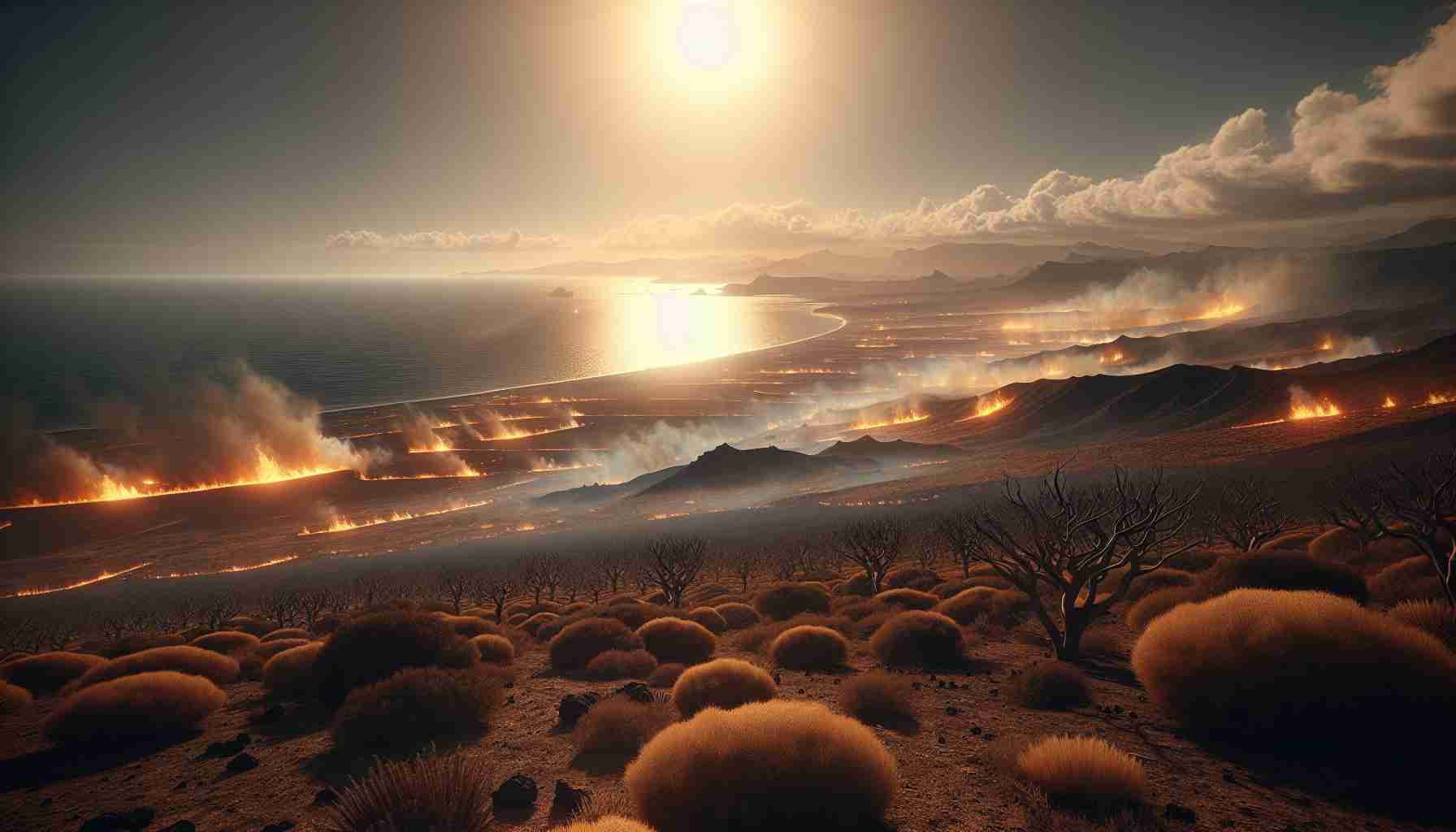
Heatwave Hits the Canary Islands, Sparking Wildfire Alert
The Canary Islands are facing a new challenge as a heatwave and prolonged dry spell have prompted authorities to issue a wildfire alert across the archipelago. While Lanzarote and Fuerteventura have been excluded from the alert, the rest of the islands remain on high alert for potential forest fires.
The combination of scorching temperatures and lack of rainfall has raised concerns among emergency services in the region, urging residents and tourists to exercise caution and adhere to fire safety guidelines.
The hot weather spells trouble for the unique flora and fauna of the Canary Islands, with the risk of wildfires posing a threat to the diverse ecosystems found across the volcanic landscape.
Authorities are closely monitoring the situation and have deployed additional resources to prevent and combat potential fires, emphasizing the importance of early detection and swift action to mitigate the risk.
Local communities are urged to stay informed, stay safe, and report any signs of fire or smoke promptly to ensure a coordinated response in case of emergencies.
As the heatwave persists, residents and tourists are reminded to prioritize safety, take preventative measures, and conserve the natural beauty of the Canary Islands by being vigilant and responsible in fire-prone areas.
Heatwave Triggers Wildfires in the Canary Islands, Highlighting Key Concerns and Measures
The current heatwave gripping the Canary Islands has led to a spike in wildfire incidents, exacerbating the challenges faced by authorities in safeguarding the region’s ecosystems and communities. While the initial wildfire alert excluded Lanzarote and Fuerteventura, other islands are now grappling with the repercussions of the scorching temperatures and prolonged dry conditions.
Key Questions:
1. What factors are contributing to the increased wildfire risk in the Canary Islands?
The combination of extreme heat, minimal precipitation, and strong winds has created a volatile environment conducive to the rapid spread of wildfires across the archipelago.
2. How are authorities responding to the wildfire threat?
Emergency services have intensified monitoring efforts and deployed additional resources to detect and contain fires promptly, underscoring the importance of early intervention to prevent large-scale devastation.
3. What are the primary challenges associated with combating wildfires in the Canary Islands?
Navigating the rugged terrain, unpredictable weather conditions, and limited access to certain areas pose significant challenges to firefighting operations, necessitating strategic planning and coordination among response teams.
Advantages:
– Heightened awareness and preparedness in the face of escalating wildfire risks.
– Enhanced cooperation between stakeholders to streamline emergency response efforts.
– Opportunities for long-term ecological restoration and conservation measures to protect vulnerable habitats.
Disadvantages:
– Potential disruptions to tourism and economic activities due to wildfire-related evacuations and damage.
– Strain on emergency services and resources, impacting their ability to address concurrent emergencies effectively.
– Increased environmental degradation and biodiversity loss as a result of widespread fires.
In light of these developments, it is crucial for residents and visitors alike to prioritize safety, adhere to fire safety protocols, and promptly report any fire-related incidents to facilitate a swift and coordinated response. By fostering a culture of vigilance and responsibility, individuals can play a vital role in safeguarding the natural heritage of the Canary Islands amidst the ongoing heatwave crisis.
For further information on wildfire prevention and response strategies, visit Canary Islands Tourism.